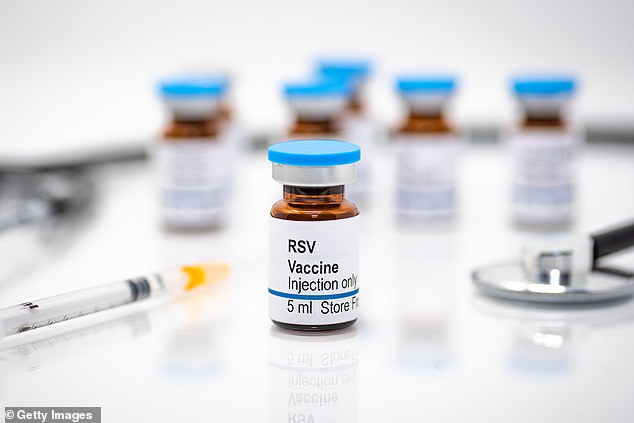Eligible people in England will soon be able to receive a respiratory syncytial virus (RSV) vaccine through the NHS for the first time.
Health chiefs today outlined plans to offer the new RSV vaccine to people aged 75 to 79, as well as pregnant women after 28 weeks in a bid to protect young children, from September.
A recent analysis suggests that offering the vaccine to these groups could prevent 5,000 hospital admissions per season and up to 15,000 emergency room visits among infants.
The same estimates suggest that the vaccine rollout could also free up 20,000 GP appointments and prevent 200 babies being sent to intensive care this winter.
RSV is a common cause of coughs and colds, and while it is a mild illness for most healthy people, it can be dangerous for the elderly and very young children.
Health chiefs today outlined plans to offer the new RSV vaccine to people aged 75 to 79, as well as pregnant women after 28 weeks in a bid to protect young children, from September.
It can cause serious infections and respiratory complications such as pneumonia, and as a result, RSV is responsible for between 20 and 30 childhood deaths each year in Britain.
The NHS’s plans for the rollout are part of its winter vaccination plans, which also include Covid and flu vaccines.
As in previous years, people belonging to vulnerable groups and the staff who care for them will be eligible to receive these vaccines.
However, while people can receive the flu and COVID vaccines on the same day, those who are also eligible for the RSV vaccine should wait at least one day between injections to maximize its effectiveness.
While preventing serious RSV infections, and therefore hospital admissions, is a benefit in itself, health chiefs also hope the vaccines will reduce winter pressures on NHS services more broadly.


